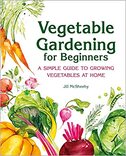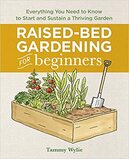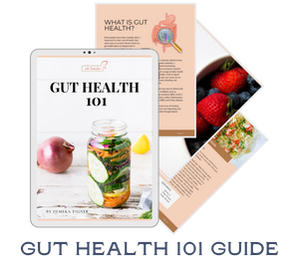|
Having a garden has a lot of advantages. Growing your own fruits, vegetables, and herbs saves you money at the grocery store on food, jams and jellies, flavorings, medicines, and even homemade gifts. Plus, food just doesn't get any fresher, tastier, or healthier than picking it out of your own garden! Enjoy being frugal while increasing your quality of life with a food garden. These tips will get you started and help your garden thrive: 1. Decide what you're going to grow. What does your family like to eat? 2. Decide how much you're going to grow and how much space you'll need. Keep in mind that some vegetables, like squash, tomatoes, and peppers produce continuously, while others, like carrots and corn, only produce once. Most new garden owners tend to get a little carried away and take on a garden that's bigger than they need. 3. Find the perfect spot. In general, your garden will grow better if it receives a lot of sunlight. It also must drain well, so the soggy spot in the back corner of the yard isn't what you're looking for.
4. Good soil helps! Ask your local nursery for advice about the soil in the area. You can even have it tested. In general, you want soil that's not too loose (sand) and not too solid (clay). Either sand or organic matter can be added to the soil to improve its quality. 5. Prepare the soil. A tiller makes easy work of the job; rent or borrow one. A shovel makes for good exercise. Combine any sand or organic material with the soil and rake everything smooth. 6. Plant your garden. Follow the directions on the seed packets or seedlings. Be sure to space properly, plant at the proper depth, and plant at the proper time for your area. 7. Maintain. Gardens need two things after they've been planted: watering and weeding. Most new gardeners tend to over-water. Things have to dry out from time to time to prevent mold or fungus from developing. The soil should stay soft.
Having a garden is a fair amount of work upfront and a small amount of work each day, but you'll soon find that your efforts are well worth it. Here are some great books to get started on your home garden:  Vegetable Gardening for Beginners: A Simple Guide to Growing Vegetables at Home https://amzn.to/3dWqA9q  Raised Bed Gardening for Beginners: Everything You Need to Know to Start and Sustain a Thriving Garden https://amzn.to/3uMCeKz Enjoy, Demeka P.S. If you're looking for someone to help you on your health journey, please give me a call, I'm a Certified Nutritional Consultant and Herbalist. Book a session with Demeka in Stone Mountain, GA. You can also contact me @ 678.701.7757.
0 Comments
Herbal remedies are plants that have a medicinal effect. Herbal remedies have been around for thousands of years. In fact, some evidence suggests that plants were used for medicinal purposes over 60,000 years ago. The earliest written evidence dates back to over 5,000 years ago from writings of Imhotep. Such herbal remedies have been making a real comeback in recent years. Herbal remedies contain powerful chemicals that many pharmaceutical companies and scientists are studying. Many of these plants are either available in the grocery store or can be grown quite easily in a garden. Using these plants in your diet can have a significant effect on your health and overall wellbeing. These herbal remedies can often be just as effective as pharmaceuticals in the prevention and treatment of disease: 1. Ginseng. Ginseng is one of the most popular plants in Chinese medicine. The most popular varieties are American ginseng and Asian ginseng. American ginseng is considered to have a greater relaxing effect, while the Asian variety is more stimulating.
5. Valerian root. This might be a little harder to find. In fact, you’ll probably have to grow this one on your own, but it’s worth the effort. This flowering plant has many health benefits.
Herbal remedies can’t replace all pharmaceutical drugs, but they are viable replacements in many situations. Of course, you should still include your doctor in your herbal remedy plans. Herbal remedies can be very effective and inexpensive. $1 of garlic can easily last a week. If your budget is tight, herbal remedies can be a great way to boost your health without breaking the bank. Even if you’re in 100% perfect health, herbal remedies can help to keep you healthy. You have nothing to lose. In fact, your food might taste even more delicious while you’re making your body healthier. Hope you enjoyed this quick read, Demeka P.S. If you're looking for someone to help you on your health journey, please give me a call, I'm a Certified Nutritional Consultant and Herbalist.
Book a session with Demeka in Stone Mountain, GA. You can also contact me @ 678.701.7757. |
Holistic Wellness ArchitectI help women over 40 build wellness strategies that nurture their body, mind, and spirit. By combining holistic healing practices, creative empowerment techniques, and supportive community connections, I guide them toward unlocking a life filled with vibrancy and fulfillment. Categories
All
Archives
May 2022
|







 RSS Feed
RSS Feed

